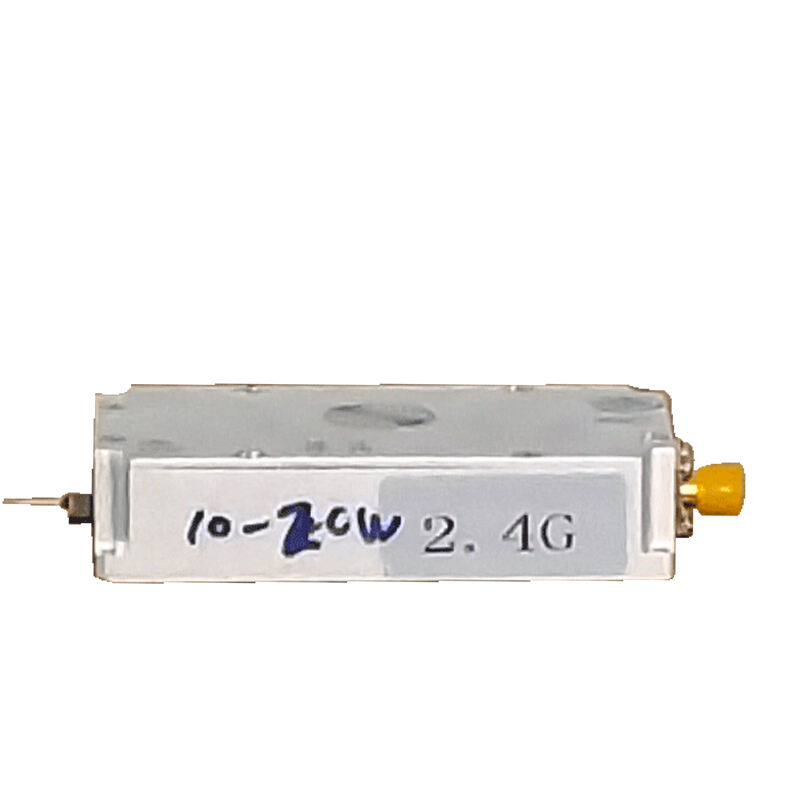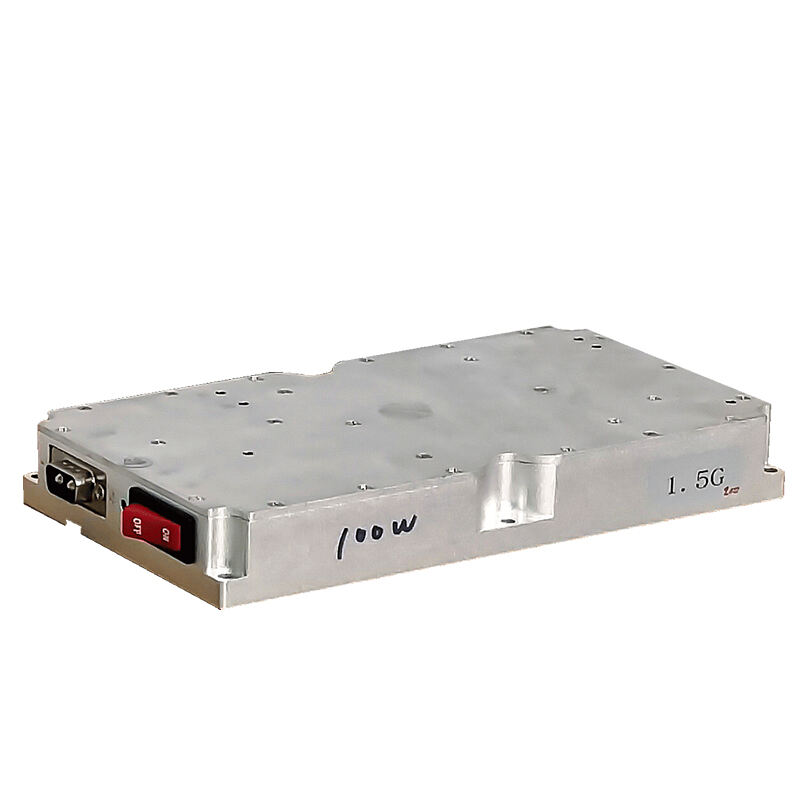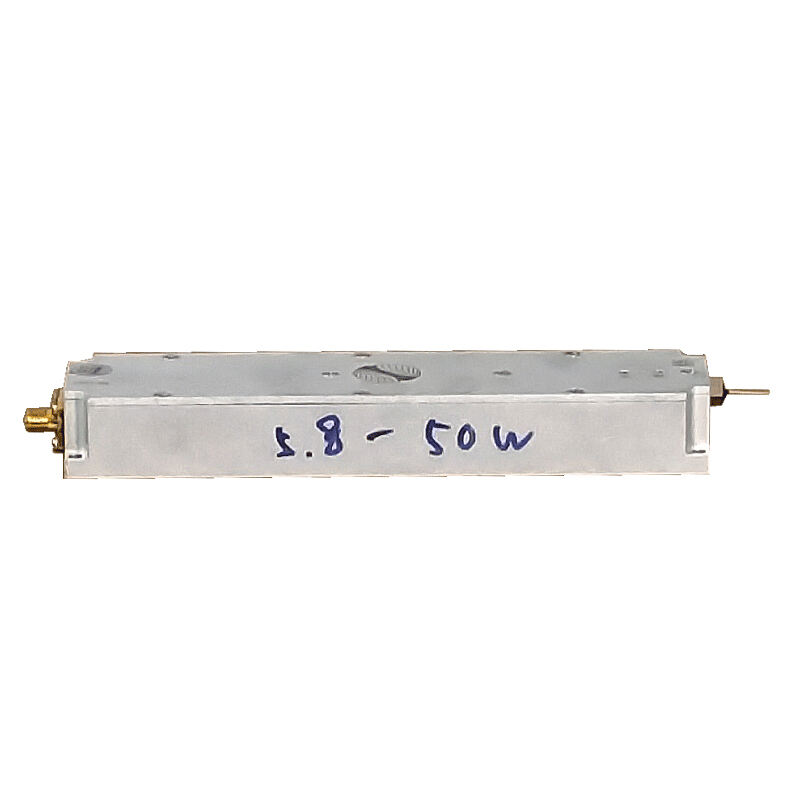When selecting a signal jammer module, ensuring frequency range compatibility is crucial. The module must operate within the frequency bands required to effectively counter the targeted signals. For optimal performance, it is essential to evaluate the module's compatibility with these specific frequency ranges. This not only enhances the efficiency of the jamming operation but also ensures that the module adheres to industry standards and regulations regarding frequency usage in various applications. Understanding the frequency landscape is vital for both legal compliance and effective deployment in various scenarios.
Determining the appropriate output power of a signal jammer module is essential to meet operational needs. The required output power depends on the environment in which the jammer will be deployed and the mission requirements it aims to fulfill. It is important to analyze the trade-off between output power and battery life, especially for portable units where energy efficiency is a key concern. Manufacturers' specifications should be carefully reviewed to verify the output power capabilities of the jammer module, along with ensuring that it possesses the necessary safety certifications to operate without causing unintended harm to surrounding devices and systems.
The deployment environment significantly impacts the selection of a signal jammer module, with critical consideration given to environmental factors such as humidity, temperature extremes, and other varying conditions. These factors influence the module's operational reliability and durability. Additionally, selecting a jammer module with features that enhance interference resistance is vital, such as advanced shielding and adaptive technology that can dynamically adjust to different environmental conditions. Investigating case studies where environmental resistance has played a significant role in operational success can provide valuable insights and guide the choice of the most robust and reliable signal jammer module for specific applications.
When evaluating jammer performance, gain and signal amplification efficiency are vital metrics that can determine the device's effectiveness and operational success. High gain enhances the jammer’s ability to disrupt target signals by increasing its reach and impact. This directly contributes to the jammer’s capacity to maintain signal obfuscation over wider areas. Amplification efficiency is equally crucial as it extends operational range while ensuring energy is used optimally, thereby conserving battery life during prolonged missions. According to industry experts, the benefits of high gain and efficient amplification manifest in improved signal disruption capabilities and prolonged operational periods. A comprehensive analysis emphasizing these metrics can effectively guide users towards selecting jammers that meet specific operational needs.
Clutter and harmonic suppression are critical factors that contribute to the clarity and reach of jamming signals. Effective suppression capability enables a signal jammer to eliminate unwanted noise and harmonics, thus ensuring that the jamming signals are not only potent but also precise. Technologies such as digital signal processing (DSP) play a significant role in achieving efficient suppression by analyzing and filtering out irrelevant frequencies. These processes allow jammers to maintain uninterrupted operations and deliver clear signals in environments rife with interference. For instance, in scenarios where signal purity is paramount, clutter and harmonic suppression can directly enhance jamming outcomes by eliminating extraneous signals, thereby refining jammer focus.
Thermal management is essential in maintaining the performance of signal jammers, especially during extended periods of deployment. Effective thermal management systems ensure that a jammer remains operationally stable by preventing overheating which can lead to device malfunctions. Cooling systems and other heat-dissipative features are integral design elements that sustain stability, allowing jammers to function reliably in diverse environmental conditions. Additionally, research has shown a strong correlation between proficient thermal management and increased device longevity; case studies confirm that jammers with advanced cooling systems experience fewer instances of performance degradation over time. Thus, selecting jammers with robust thermal management systems is key to ensuring operational continuity and extending the life of the device.
The 1.5G Module 10W Jammer stands out for its precision in defending against UAV-based threats. This module is tailored specifically to neutralize UAV communications by leveraging its working frequency of 1560-1620MHz and a maximum output power of 10W. In military applications, effective UAV defense is paramount, and this jammer's features offer reliable protection. Several defense experts have praised its efficient range and durability, which maintain operational integrity even in challenging environments.

The 900MHz Module is designed to offer substantial interference across diverse frequency ranges. With capabilities of multi-frequency blocking and a maximum output power of 100W, this module excels in environments saturated with various signals. Particularly vital in crowded or high-stakes settings, its high-power jamming ability ensures the disruption of numerous signal types simultaneously. Operational tests showcase its efficiency in scenarios demanding robust interference to maintain security.

Equipped with advanced jamming technology, the 5.8G Module provides secure communication disruption both in military operations and civilian applications. This module operates efficiently at frequencies of 5720-5850MHz with a power output of 50W, emphasizing its adeptness in compromising secure lines. Its versatility makes it suitable for diverse sectors, and reviews highlight its reliability in keeping confidential communications secure from unauthorized access.

Deploying signal jammers in military operations requires strategic integration to effectively neutralize drone threats. The key is to tailor deployment strategies based on specific military needs, emphasizing precision and efficiency. For instance, integrating jammers into existing military platforms, such as aircraft and ground vehicles, enhances functionality and offers seamless operation. Reports, such as those from ShenZhen HaiYi's collaboration with defense agencies, demonstrate successful real-world implementations using signal jammers to protect against unauthorized UAVs. These case studies highlight the importance of employing advanced technologies that ensure signal disruption without compromising communication among allied forces.
Law enforcement can strategically employ jamming technologies to control communication blackouts in critical situations, thereby ensuring public safety and operational security. Case studies reveal instances where tactical communication blackouts were necessary to manage hostage negotiations, raid operations, and during large-scale public events. By effectively utilizing jammers, law enforcement agencies can prevent unauthorized communications that could potentially compromise their operations. Nevertheless, the use of such technology must align with legal regulations to avoid infringing on public communications. Understanding these legal considerations ensures that law enforcement remains compliant while leveraging jamming technologies.
In corporate environments, preventing data leakage during sensitive meetings or events is critical. Signal jammers play a significant role by blocking unauthorized transmissions that could lead to information breaches. Configurations can be tailored to address unique corporate setups, ensuring security in high-risk scenarios. According to recent statistics, a significant percentage of data breaches stem from lax communication security practices. Implementing tailored jamming configurations can notably reduce these risks. By adopting proactive jamming strategies, corporations can enhance their data security measures, thus safeguarding sensitive corporate information from unwanted surveillance or hacking attempts.

